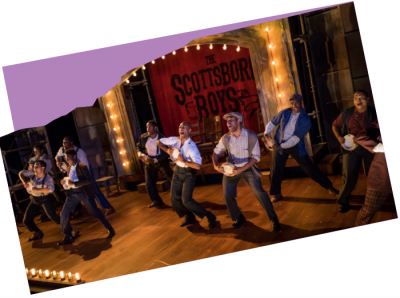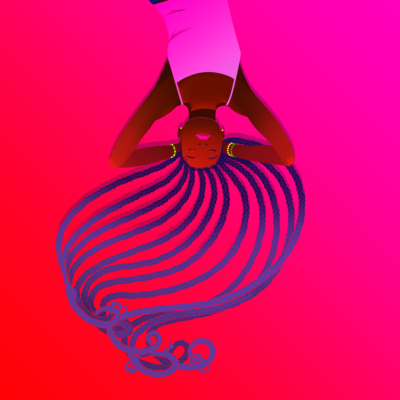Your donation sets the stage for a new season of Boston's most intimate, entertaining and provocative plays and musicals. Our shows make powerful connections with our audiences-- and they are only possible because of you.
Ken Urban: “What do we believe in?”
Ken Urban: “What do we believe in?”
You’re a musician as well as a playwright; when did that start?
I’ve always played music. I started in high school and was in a band for a long time, but it kind of fell off the radar in college and grad school. When I was getting the first early productions of my plays in New York, at small theatres or in festivals, most of the producers couldn’t afford to hire a sound designer. Since sound is always an important part of my plays, I took it upon myself to start learning sound programs so that there could be some music or cues during the shows. I started building pieces as cues for productions, but soon it became its own thing. That’s actually the way that Occurrence, my band, got its name.
From working with sound programs?
Right. At the beginning, I was too poor to afford the programs, but they had demo versions which worked for about 15-25 minutes and then shut off. So I had only those 15-25 minutes to make a piece. Everything was like a one-time occurrence, because I couldn’t recreate or save anything, and so the name came from that. Luckily I only did that for a year or so before I finally just said, y’know, it’s time to save up the money and buy these things because it’s driving me crazy.
What is it about sound that makes it so important to your work?
I often hear my plays before I see them. The rhythm of the language and the way the characters speak are very important; when they’re right, they convey the story and the emotion better than anything. I’ll sit in rehearsals and just listen with my eyes closed sometimes. If I watch what’s going on, I’ll get hung up on all the production stuff that’s happening and isn’t fully formed yet. But if I just sit back and listen to what’s happening, I can tell that the story is there. I think I’ve always just been a sound person. That’s one of the reasons I love working with designers and directors, because they bring all those other elements to the table.
Speaking of directors: you’ve known Bevin O’Gara for a long time, but this show is a first for the two of you, yes?
We’ve known each other for over eight years at this point, and worked on some readings and a ten-minute for the Boston Theatre Marathon; but this is our first chance to work together on a full production, which I’m really excited about. I love how Bevin talks to actors; she asks them great questions and really listens. She’s just a great collaborator. She always makes it clear that the best idea is the best idea, no matter what person in the room it comes from. She also really understands how new plays are made. It’s not about an auteur vision, but a shared vision, the conversation between the playwright, director, designers, and actors, and finding the best way to tell the story.
What was the inspiration for A Future Perfect?
When first I moved to Cambridge, I reconnected with a few friends from college who were now married, and we started playing music together. We formed a band called The Avon Barksdale. It was the first time since I was in high school that I was playing music in a room with people since Occurrence was, at that time, just me. One night, we all were having dinner together at my house, my bandmates were there with their wives, and one of the wives did not want any alcohol. I was sort of joking around, and said, “Oh, what, are you pregnant or something?” And there was this long long pause, and she said, “Yes.” And then my other bandmate’s wife said, “Oh, that’s amazing, I’m pregnant too.” It was an awkward moment because it made me realize that my bandmates’ lives were changing, and this band was going to be over very soon. Sure enough, it was. We didn’t have an official breaking up, but it just sort of happened; they were all knee-deep in babyland within a few months. But it was such a fun time and I decided that it was time that Occurrence wasn’t just me, so my friend Wayne joined the band.
The play is set in a very specific moment in time. What led to that decision?
It takes place in the fall of 2011, not just because that’s when I started writing the play, but also because all the characters in the play are asking themselves the same questions that I feel were being asked on a national level in fall of 2011: What do we believe in? What are our values? In fall 2011, we were three years into the first Obama administration, and collectively the people who had invested so much hope into his presidency were realizing that he was not a radical, and that change at the national level happens slowly. A lot of us were coming to terms with a sense of disappointment after all of that hope. And then Occupy Wall Street happened. I was in New York the week it started. I remember having to walk across the Brooklyn Bridge to get to my friends’ apartment where I was staying because the subways were shut down. It all felt really exciting but also made me admit to myself that I wasn’t going to go camp out in the park, even though I believed the things that they were talking about. I had to deal with that disconnect. The personal questions that my characters are asking, that conversation was also happening on a national level at that time; so it was important to me that the play be set during that moment. It feels like we are in one of those moments again with the incidents in Ferguson and the “I Can’t Breathe” campaign.
There’s a very real and sincere struggling with those ideas in the play; the personal issues the characters are having are given equal weight to everything else.
I hate irony in plays. I hate that kind of “wink wink, aren’t we so cool.” I’ve never been able to write a play that didn’t come from a deeply emotional place, and that’s hard; but I think that the plays I respond to the most are plays that come from an intimate or emotional place, and which strive for connection with an audience. It’s not a question of realism versus downtown for me. It’s about that connection. That’s something that we all crave, I think, because we all live such atomized lives. We spend all our time on our phones or computers, devices that connect us in a way but which also make us feel very distant from other people. There’s something about that kind of collective experience of going to theatre that feels even more necessary these days.
And very specific to theatre, as well.
It is. I like a heightened sense of theatricality, where there’s something extra. Even though A Future Perfect is on the more naturalistic spectrum of my plays, there’s still live music being performed throughout, and there are events in the play that will vary night to night, depending on the energy of the moment and how actors choose to play certain moments. So much is communicated in stage directions that we really won’t know the full impact of key moments until we see it on its feet, and that’s great. Something as simple as singing along to a Smiths song, or the looks that characters give each other during a scene of dialogue, those physical actions transmit an immense amount of emotional information and story.
 Past Productions
Past Productions LAUGHS IN SPANISH
LAUGHS IN SPANISH PRU PAYNE
PRU PAYNE ain't no mo'
ain't no mo' a man of no importance
a man of no importance JAJA’S AFRICAN HAIR BRAIDING
JAJA’S AFRICAN HAIR BRAIDING




